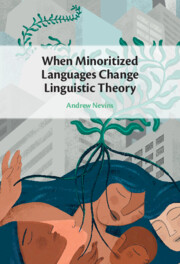
- Cited by 1
-
Cited byCrossref Citations
This Book has been cited by the following publications. This list is generated based on data provided by Crossref.
Baxter, Robert Neal 2024. Minority language interpreting in regional parliaments: Breton, Corsican, Scottish Gaelic and Welsh compared. Perspectives, p. 1.
- Publisher:
- Cambridge University Press
- Online publication date:
- November 2022
- Print publication year:
- 2022
- Online ISBN:
- 9781009029889


